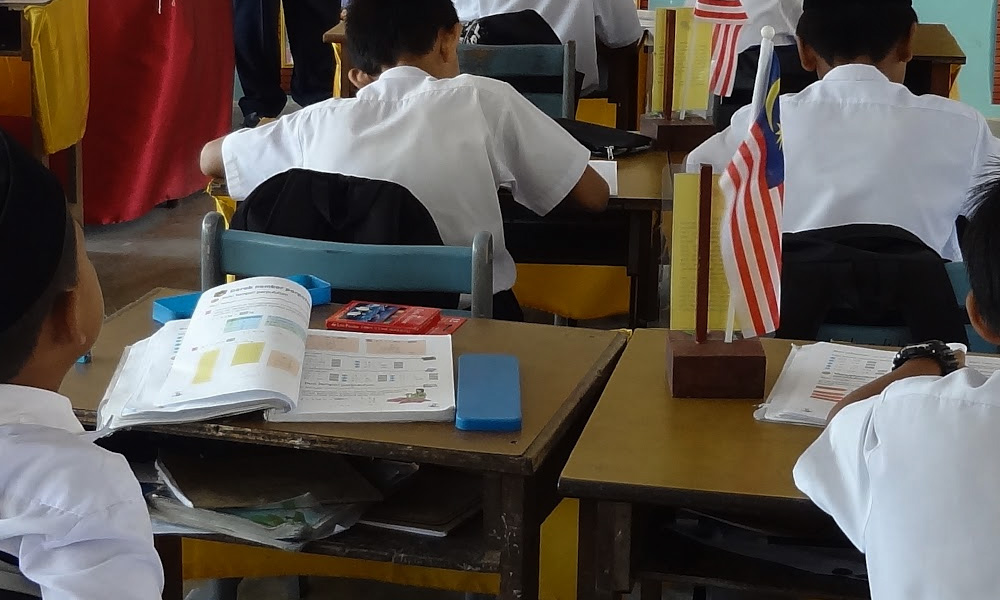COMMENT | Malaysia’s rich heritage of cultures and linguistic diversity must enrich our identity as Malaysians. This has an essential role with the rise of Asia and how Malaysia is situated geographically between China and India, the new economic powerhouses of the world
The recent announcement of the introduction of the Jawi for the Standard Four Bahasa Malaysia syllabus has received both positive and negative responses from the various communities. In reflecting on this theme based on earlier studies undertaken on vernacular schools, the Ministry of Education must really invest much more resources in improvements in the teaching and learning of Bahasa Malaysia in vernacular primary schools.
First, the Ministry of Education must find effective ways to ensure that the Bahasa Malaysia taught in all schools are standardised. Currently, there are two sets of the syllabus; one for vernacular schools and another which is at a higher standard of BM in mainstream primary schools. This also means there is no standard UPRS test for Standard Six students.
After 62 years there should be one standard BM subject so as to ensure no child is disadvantaged in the secondary school system. The priority is what needs to take place for this improvement? The Ministry of Education in the "new Malaysia" must have this as their first priority
Second, while I do not have the accurate data on the number of students who pass BM, those who fail and those who are able to secure a credit in BM at the UPRS level in vernacular schools, the priority must be to improve the passing rate and also increase the numbers securing credit at the Standard Six exams in BM. Students' competencies must be increased so as to manage the workload in the secondary school system which is fully in the Malay medium.
In Tamil vernacular schools, over 30-40 percent fail the BM paper while they do well in subjects like Maths and Science. This numbers must drop so as to ensure every child reaches a competency stage of handling BM at the secondary school level. This is the responsibility of the Education Ministry to ensure the quality of teaching and learning of BM improves.
Third, in vernacular schools there is the issue of teaching hours. The difficulty is finding the extra hours. So it is recommended that students could do extra hours on selected days but funds are needed to pay language teachers for the extra hours. Some students have difficulties with their bus transport and additional funds needed for meals. We must ensure no child is left behind in language proficiency.

Fourth, there is also an urgent need to improve the quality BM teaching and learning especially in the quality of teachers teaching BM in vernacular schools. Community researchers have advocated for the teaching of BM as a second language approach and introducing BM along with the vernacular language or dual teaching approach. Therefore better language teachers to work with students over the six primary years are essential so as to ensure that their graduation into the Malay medium secondary school is smooth and effective.
Fifth, the secondary Remove class system. The real test is to ensure no student needs this class. So at the primary level, this is a priority.
There is an urgent call for the improvement of BM in vernacular schools. The ministry must have a dialogue with parents, teachers, community leaders so see what the most essential priorities are. The introduction of the Jawi script or its appreciation is not the most pressing and urgent need in vernacular schools.
While there is a rich cultural heritage for the Malay world for the introduction of Jawi at the level of the vernacular school, it is not the most urgent.
Priority must be to improve the current system (of teaching and learning of BM) and increase not just competencies but also the love for the language with the full support of the parents, teachers and communities.
DENISON JAYASOORIA is the principal research fellow at the Institute of Ethnic Studies, UKM. He co-edited with Prof KS Nathan the book Contemporary Malaysian Indians published by Kita-UKM in 2016. He shared the above on Aug 5, 2019, at the public forum on "Rethinking Multiculturalism in Malaysian Education System" in Kuala Lumpur.
The views expressed here are those of the author/contributor and do not necessarily represent the views of Malaysiakini.

